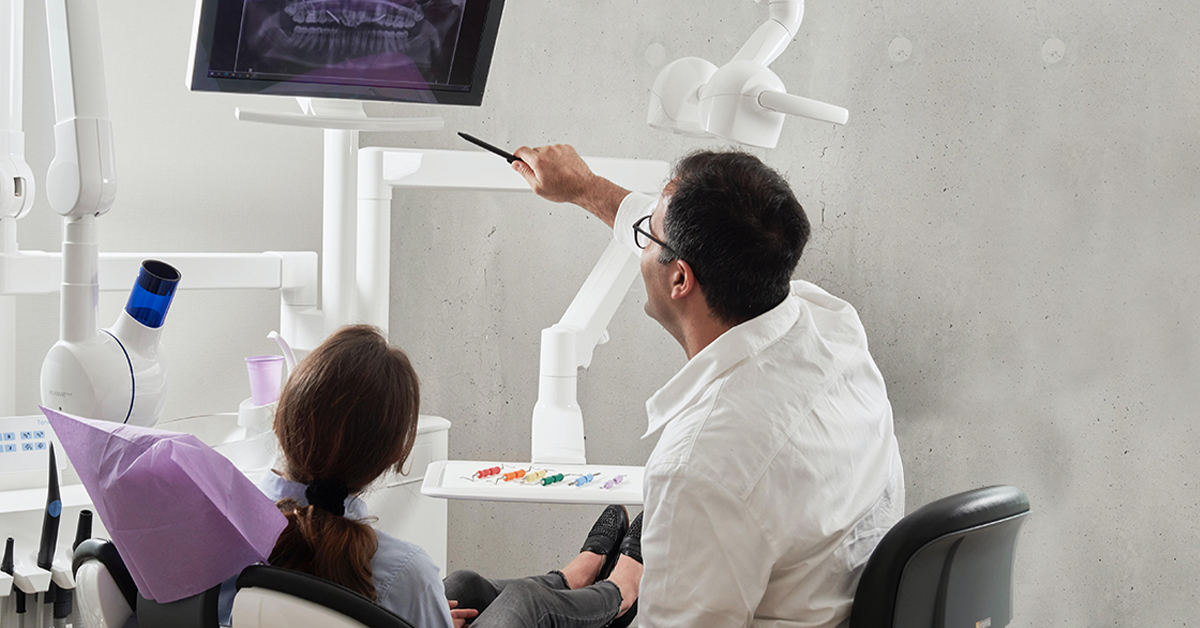Posted on: August 12, 2022
Frequently Asked Questions About Dental Emergencies in Collingswood

Fast intervention is the key to fixing an emergency dental situation. By addressing the problem as soon as it appears, your dentist in Collingswood can repair the damage, keep further damage from occurring, and address the problem’s cause.
If you think you may have a dental emergency, you probably have a lot of questions, many of which are shared by most people experiencing a dental emergency. That’s why we’ve chosen to answer some of the most frequently asked questions for you below.
As you read through these, if you find that what you’re experiencing is a dental emergency, get it checked out by your Collingswood dentist right away. Call us at Thurm Dental Group and we’ll set you up with an appointment with an emergency dentist without delay.
Do I Still Need to See a Dentist If I’m Not in Pain?
Just because you’re not experiencing pain associated with a dental problem, it doesn’t mean that problem is not an emergency you need to deal with as soon as possible.
With some dental problems, pain is not a symptom; with others, it only develops if the issue goes untreated and progresses. In both cases, emergency dental care is still essential.
Instead of using pain as your gauge of the seriousness of a dental problem, learn the symptoms of different types of dental emergencies so you can recognize them as soon as they occur. The most common early symptoms of many dental problems are swelling, redness or bleeding of the gums, or visible changes to your teeth. Signs a dental problem may be an emergency include:
- Bleeding of the gums, tongue, lips or cheek that won’t stop after 15 minutes
- Damage to the teeth due to impact or injury, such as lost, loosened, broken, chipped or fractured teeth
- Pus forming due to a bacterial infection known as a tooth abscess or an abscessed tooth
- A dislodged blood clot or a failure for a blood clot to form over the site of a recent tooth extraction, creating what’s known as a dry socket
Is a Loose or Lost Dental Crown or Filling Considered a Dental Emergency?
Yes, if you have a dental crown or filling come loose or fall out altogether, you need an emergency dentist in Collingswood to take care of it right away. Any vulnerability in the tooth exposes it to foreign elements like bacteria and food particles that can lead to more severe dental problems like tooth decay and gum disease.
By seeing an emergency dentist rather than simply waiting for your next regular checkup, your dentist can provide a temporary solution to the problem while devising and executing a more permanent solution with you. In this way, you can keep the problem from causing further damage or pain while that permanent solution gets implemented.
That’s why you should contact us at Thurm Dental Group for an emergency dental appointment the moment you discover a filling or crown has been loosened, lost, or broken.
Can I Only See an Emergency Dentist After Hours?
You can usually get emergency dental care during a dentist’s regular hours of operation, because most dentists put time in their schedules aside for emergency dentistry.
Don’t wait until after hours to call your Collingswood dentist about a dental emergency. Call our office at Thurm Dental Group right away, and we’ll make sure you get the dental care you need when you need it.
If I Have a Dental Emergency, Should I Just Go to the Emergency Room?
Emergency room doctors do not perform dental care. However, in some instances, there may be an effect of the dental emergency on other parts of the body or some other medical condition could be causing or contributing to the dental emergency. In those cases, it may be most effective to have an emergency room doctor take care of those problems before you have your dentist take care of the dental emergency.
For instance, if you have severe inflammation or a severe infection in other parts of your body, like your gums or face, those could interfere with effective emergency dental care. You should therefore get those problems relieved before an emergency dentist works on the problem in your mouth.
Other signs you should visit the emergency room with a dental emergency is if there’s extreme bleeding associated with it or if it was caused by a severe impact or other sudden injury to your jaw, head, teeth or face.
If you do seek aid for a dental emergency at the emergency room, however, make sure you inform your dentist in Collingswood of the problem and what you’re currently doing about it. That way, your dentist can schedule you an appointment for after you get released from the hospital.
If these problems occur and you can’t bring yourself down to the emergency room, contact 9-1-1.
How Can I Prevent Dental Emergencies?
With a proper oral care routine at home and visits to your dentist in Collingswood for regular cleanings and exams, you can prevent the majority of dental emergencies related to bacterial infection, such as tooth decay, an abscess, and gum disease.
By taking the proper precautionary measures when engaging in high-impact physical activity, you can avoid dental emergencies related to injury and sudden impact to the mouth. These include fastening your seat belt while in a moving vehicle, wearing the appropriate protective gear while playing sports, avoiding grinding your teeth or biting on hard objects like popcorn kernels, ice or hard candy and avoiding using your teeth to tear or cut into anything.
By minimizing your risk of dental emergencies, you can keep your mouth healthy and protected. When a dental emergency occurs, however, call us at Thurm Dental Group for emergency dental care in Collingswood and get the problem fixed before it can get any worse.
